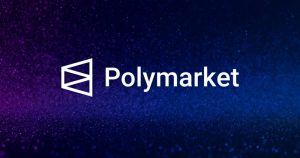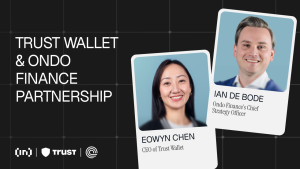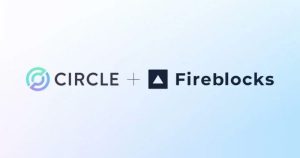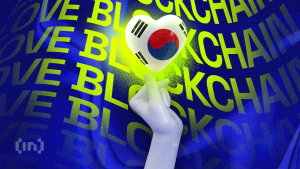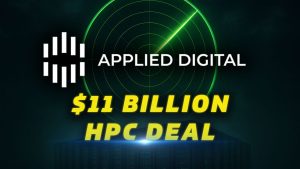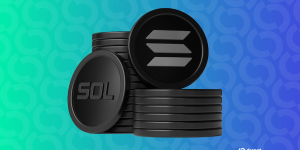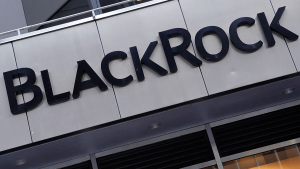How UXLINK Is Transforming Social Networks With Blockchain Technology

Editorial Note: The following content does not reflect the views or opinions of BeInCrypto. It is provided for informational purposes only and should not be interpreted as financial advice. Please conduct your own research before making any investment decisions.
With the emergence of web2, social products have been at the forefront of the internet, allowing users to create and engage with content, giving them the power to have their voices heard by millions. However, this came at a serious cost as the user data got into the hands of a few powerful organizations.
SocialFi or Social Finance is here to change that by blending the power of web3 and its’ promise of decentralization, it gives users a more robust social media network where their data and privacy are secure. SocialFi gives total control to users as there is no central authority running the network since the system is run entirely by decentralized nodes.
Among several SocialFi projects out there, UXLINK is at the forefront by leading the way in socialized web3 interactions.
What is UXLINK?
UXLINK is a leading user-driven web3 social platform that aims for the mass adoption of SocialFi. Its entire infrastructure is built on Telegram and it mainly focuses on “acquaintance social network,” giving users the power to build a real-world acquaintance social relationship map. “UXLINK strikes a delicate balance at the intersection of fundamental social principles and core Web3 concepts,” said Yinghao from SevenX Ventures.
This approach is different from UXLINK’s competitors like Friend.Tech and Farcaster, both of which are also renowned SocialFi projects. To boost user-friendliness, UXLINK features a wide range of decentralized applications, all of which are seamlessly incorporated with Telegram.
Furthermore, UXLINK leverages Telegram’s authentic social data, allowing community mods to access multiple management service tools. With the power of UXLINK’s comprehensive suite of community tools, users can access to most diverse business scenarios that are present within the blockchain realm, ultimately enhancing their collaboration and engagement.
Since UXLINK delivers an efficient, secure, and flexible decentralized social product that is tailored specifically for the Web3 community, it has successfully attracted over 9 million Externally Owned Accounts (EOAs). This number is almost 10 times that of UXLINK’s competitors including Friend.Tech and about 30 times that of Farcaster.
Currently, UXLINK has a user base of over 5.7 million registered users with over 1 million daily active users (DAUs) on different decentralized applications. Furthermore, UXLINK has over 300,000 on-chain daily active users (DAUs).
UXLINKs first-season airdrop is also in progress which aims to target the top 10% of users and will surpass a scale of 550,000.
Learn more about UXLINK here
Web3 Powered Groups
UXLINK is the world’s largest social platform based on web3 groups as it has over 100,000 groups, spanning over 7 million users. UXLINK can bring high user growth by utilizing the RWS protocol and the Link to Earn trust mechanism.
These groups can connect with numerous web3 applications through GWallet, which is the chain wallet of groups on UXLINK. By doing so, users can interact with decentralized applications as a group, which ultimately enriches the entire interaction roles of the web3 ecosystem.
On the other hand, GGraph, which is the chain graph of groups, is a social graph that is constructed entirely based on group relationships, which helps to provide an accessible database for group-based application scenarios.
At its core, the purpose of the groups is to act as a disruptive form of traffic organization and help users get access to trusted scenarios, timely interactions, and free customer service.
Product Design of UXLINK
UXLINK is dedicated to leading an integrated social ecosystem that is aimed at channeling web3 traffic, social trading, and infrastructure. The Product architecture diagram of UXLINK is as follows:
The UXLINK’s product ecosystem is structured into three distinct layers:
These layers are:
1. Application Layer
The Application layer encompasses UX Discover and Social DEX, helping users to discover, participate, and invest in different group contexts. This layer also empowers third-party developers, giving them the power to build applications that are tailored to user needs.
2. Protocol Layer
The protocol layer grants users true ownership of their social connections and data. Developers have the power to leverage these protocols as they can deliver personalized user experiences that include AI-drive algorithms, recommendations, and group formations.
3. Social Liquidity Layer
While this layer is not operational yet, however, it aims to establish a user-centric infrastructure that tokenizes social relationships and data assets. The layer will help to facilitate seamless transfer across various public chains and decentralized applications securely.
At their core, with both the Protocol and Social Liquidity Layer, developers gain access to build robust infrastructure, which ultimately gives room to build innovation and improve user engagement.
Trusted Network & Social Relationships
When it comes to environments that are focused on assets and financial activities, it is vital to have trust within the social networks.
This is because trust instills a sense of security that helps to foster ongoing user engagement, which ultimately helps to cultivate an innate “confidence” within familiar networks. As a result, users develop a strong loyalty to UXLINK as time progresses.
Another key area in which UXLINK stands out is its architecture which is ingeniously designed to harness the power of genuine socialization. Allowing UXLINK to essentially function as a sophisticated data production machine.
UXLINK achieves this with the help of mining and migrating authentic social relationships which helps it to generate various types of data. This data ranges from basic acquaintance connections to more intricate associations including person-group, person-network, person-project, and person-asset relationships.
UXLINK Connector
UXLINK also serves as a super-connector where it acts as a central hub between two interconnected closed loops. There are two types of closed loops including:
1. Smaller Closed Loops
UXLINK effectively links users, products, and developers through its product stack. This addresses the core needs of users and developers, and also fosters a robust user-product community.
2. Broader Closed Loops
The broader close loop includes infrastructure, traffic, and applications. It has a three-layer structure of Layer/Chain-Protocol-Dapp/Application that is coupled with an underlying trust network. UXLINK has the power to seamlessly bridge the gap between two primary factions of Web3 that include infrastructure and applications through the help of traffic.
Learn more about UXLINK here
UXLINK Developer Team
A major part of the reason behind UXLINK’s success is its S-tier or Special-tier founder who successfully leads an S-tier team.
Both the founder and the team have years of entrepreneurial experience in the tech industry, giving them exceptional expertise in product R&D, growth strategies, operations, and fundraising.
The team has already managed social products that have over a hundred million users and showed their iterative capabilities when they fully embraced web3 by grasping concepts, technical frameworks, and web3 economy. Not only that, they further ventured beyond conventional exploration and successfully developed UXLINK.
At the same time, the team has demonstrated strong execution and resource integration abilities as they delivered products quickly, established multiple partnerships, and executed multiple partnerships. All of this has helped to improve their entrepreneurial and business capabilities.
It’s no wonder because of the team and founder’s exceptional capabilities, UXLINK received funding from several crypto Venture Capitalists (VCs) including OKX Ventures and Matrixport Ventures. The cumulative financing amounted to $9 million.
In March 2024, UXLINK announced receiving a new round of financing led by SevenX Ventures, INCE Capital, and HashKey Capital. The financing amounted to a total of $5 million and proves the growing trust VCs have in UXLINK.
None of this would have been possible without the core principles of UXLINK which include openness, modularity, and convenience.
UXLINK: Helping Authentic Socialization
UXLINK understands the importance of genuine social connections and experiences, therefore it aims to mirror those real-life social dynamics.
UXLINK achieves this by emphasizing bilateral relationships that are characterized by communication, collaboration, and cooperation which are contrary to one-sided interactions that are common on social media.
Trust is established through direct or indirect endorsements. The interpersonal connections then naturally evolve from one-on-one interactions to groups, which helps to foster multidimensional interactions and network effects.
Furthermore, the purpose of UXLINK is to effectively address what defines a successful social product and what does not. There are two ways through which UXLINK addresses, including digitizing real-world social interactions that help to create unique online experiences.
The other approach includes the creation of entirely new social scenarios such as matchmaking and puzzle-solving. UXLINK encompasses both these strategies, thereby being able to provide a comprehensive range of scenarios that are effectively tailored for web3.
Future of UXLINK
It is without a doubt that social networks benefit from having a higher user base because the more users a network has, the more valuable it becomes for all parties involved.
However, for this to happen, UXLINK has to reach a certain point which it is actively trying to do so by collaborating with top industry projects. UXLINK is also using rigorous selection methods that help it select high-quality users that will help to improve engagement.
In the end, this will help to improve the project’s reputation and credibility among not only users but also the stakeholders, essentially proving its brand power. Considering this, it is likely that UXLINK will be worth more than $200 in the coming years.
Final Thoughts
Overall, with the evolution of web3 and the emergence of SocialFi, UXLINK has a lot to offer to the community with its unique perspective and clever architecture that helps to import web2 traffic into web3. As UXLINK’s ecosystem uses a unique ecosystem of DeFi, NFT, and GameFi, this builds a unique and innovative social infrastructure for users.
Since UXLINK integrated products, users, and developers all in one place, it goes to show that in the coming years, its demand will only increase by attracting a huge range of users!
Links: Telegram | Twitter
Disclaimer
This article is sponsored content and does not represent the views or opinions of BeInCrypto. While we adhere to the Trust Project guidelines for unbiased and transparent reporting, this content is created by a third party and is intended for promotional purposes. Readers are advised to verify information independently and consult with a professional before making decisions based on this sponsored content. Please note that our Terms and Conditions, Privacy Policy, and Disclaimers have been updated.





